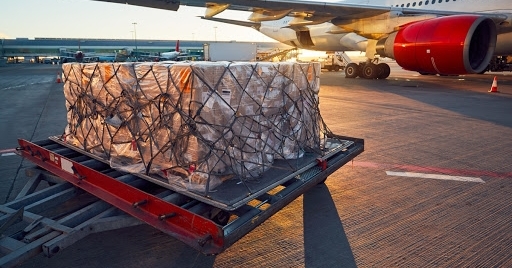TIACA calls for action on 5 critical challenges in air cargo industry
April 7, 2021: The International Air Cargo Association (TIACA) called for action to address five critical challenges being faced by the air cargo industry during a media day presentation, which are digitalisation, sustainability, security, liberalisation and collaboration.

April 7, 2021: The International Air Cargo Association (TIACA) called for action to address five critical challenges being faced by the air cargo industry during a media day presentation, which are digitalisation, sustainability, security, liberalisation and collaboration.
The organization has completed a yearlong transformation program that has created a forward-looking association well-positioned to unite and represent all sectors of the supply chain, reflecting its broad membership composition.
Glyn Hughes, TIACA director-general, said, “The industry has demonstrated over the last 12 months, how effective it can be when all the supply chain partners unite around a common objective, supporting the global community through the Covid pandemic. Our industry came together initially by transporting PPE and other life essentials and then mobilized to provide the only effective transport mode to support global vaccine distribution.”
TIACA has identified key industry priorities that will need to be embraced by the entire supply chain in order to modernize and continue to provide enhanced solutions addressing shipper and other customer demands.
Five key challenges
1. Digitalization: Efficient and effective solutions require harnessing the power of data to modernize processes and provide transparent quality services. Great moves forward have been experienced during the past 12 months as the industry was forced to find new ways of working. We must now take this even further and we urge all parties to establish and implement digital transformation plans.
2. Sustainability: The air cargo industry must reflect the global society of which it serves. We must collectively seek to focus on People, Planet and Prosperity. In order to flourish in the years to come, we must create equal opportunities for all, embrace technology and innovation and ensure we implement environmental responsible solutions designed to protect the planet today and for generations to come.
3. Safety and Security: The protection of the supply chain and its employees as well as regulatory compliance are critical components of future industry success. We call on Governments to ensure regulations are relevant and workable, aligned with the reshaped world and to work with industry in tackling counterfeit and non-compliant shipments. Government authorities must take appropriate action against those who seek to evade regulations.
4. Liberalization: Fair and liberal trade policies will ensure the continued growth of the global economy which relies heavily on effective global air cargo networks. Supportive trade regulations, coupled with fair and liberalized air and ground regulations will ensure the industry can develop and grow aligned with market needs. We as an industry must come together to ensure our voice is heard to support trade policies that positively impact the global economy.
5. Partnerships and Collaboration: Success can only be achieved through effective collaboration between supply chain partners, supply chain customers and those who regulate the industry. We as an industry must unite around a common vision for an efficient, effective, sustainable global supply network established through strong community relations.
Steven Polmans, chair, TIACA, said, “TIACA is committed to working with its members, the broader industry, association partners and government agencies to ensure we have a united and successful air cargo industry. We have demonstrated considerable success over the past months but as we go forward new challenges will materialize. We will need to be more innovative, agile and focused as an industry to overcome them.”



